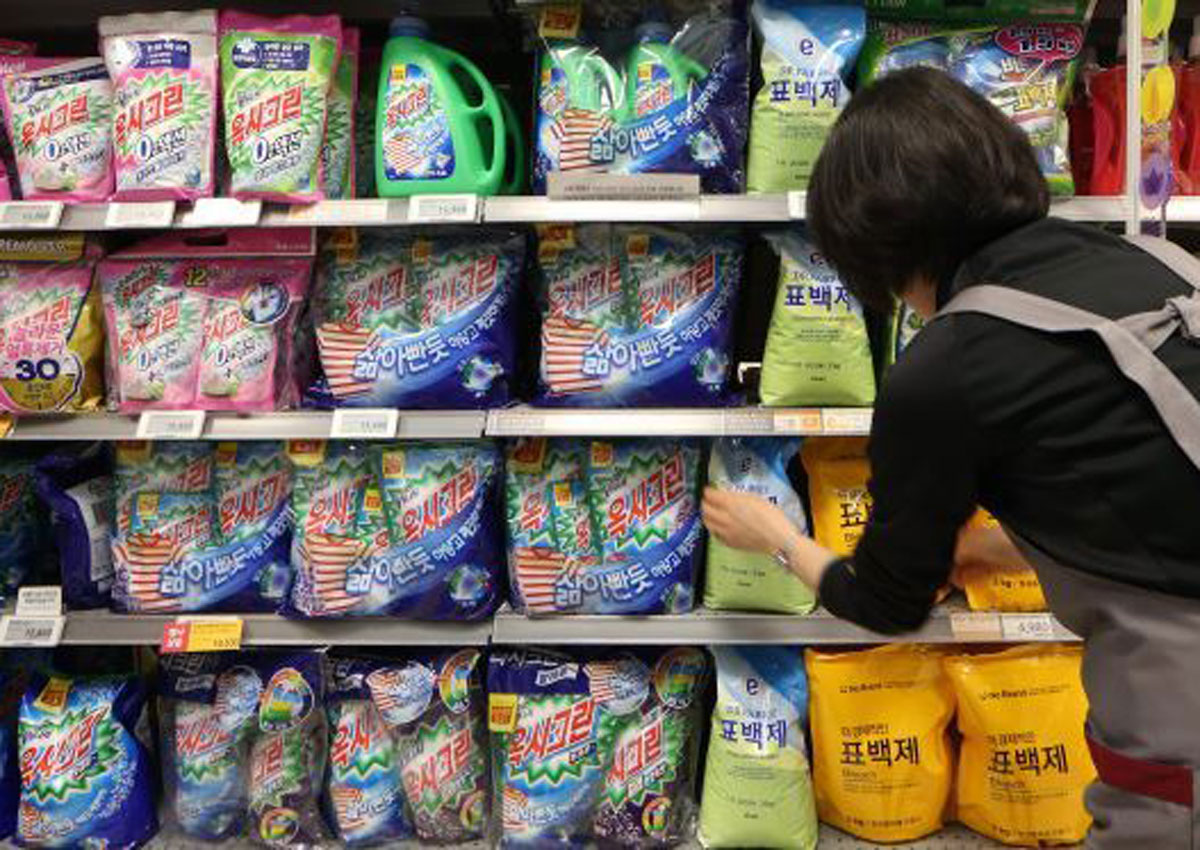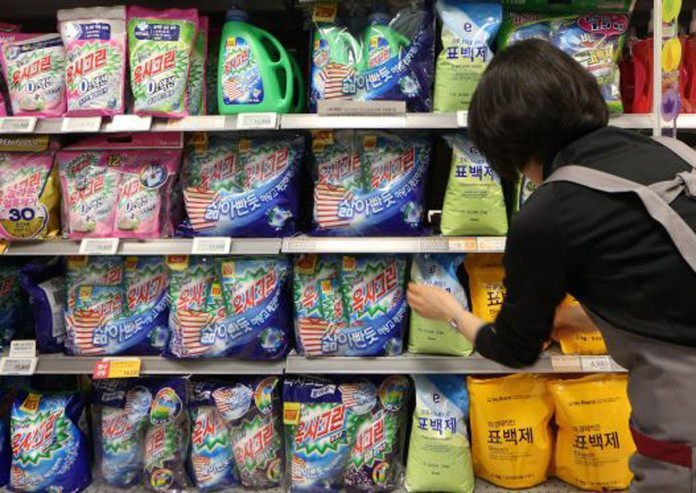Kim Min-sun, a 35-year-old office worker in Seoul, recalls a winter day in 2010 when she bought a bottle of Oxy Ssak Ssak, a humidifier sterilizer accused of killing at least 103 Koreans, at a supermarket in Seoul.
Cheap and convenient, the product was a hit item that built a false hope of getting rid of 99.9 per cent germs inside the water tank of humidifiers.
But what kept Kim wondering at that time was the name of the product manufacturer — Oxy Reckitt Benckiser — a UK company she was familiar with after spending years in England and Switzerland for study.
“I was curious why Reckitt Benckiser was selling a product in Korea that didn’t exist elsewhere — especially in Europe,” she said.
“After watching all these tragedies that the product and the company have caused, I cannot help but think how vulnerable Korean consumers are, particularly to foreign firms.”
Kim is one of a growing number of consumers rethinking their unconditional generosity toward imported products or items manufactured by foreign brands.
The RB case is not the first. Questions over the safety of foreign products have been increasing since last year with Volkswagen Korea’s passive response toward owners of vehicles involved in its emission-cheating scandal. The German carmaker recently came up with detailed cash compensation plans for its US customers, but is yet to release recall plans for Korean customers.
Homeplus, the former local affiliate of British retail giant Tesco, also came under fire for selling customer data to insurance firms for money. The court acquitted the firm in January, saying its customers were duly informed about the data sale. However, consumers were still sceptical, and amid growing criticism over the discount chain’s unethical business it was sold to a consortium of investors led by local private equity firm MBK Partner late last year.
The reasons why Koreans remain vulnerable to possible damages is due to weak legal protection on consumer rights, experts say.
“The absence of class action suits is a major hurdle for consumer compensation,” said a PR representative of Consumer Union in Korea.
Class actions suits, which are a common way for consumers to sue for damages in the US, allow an individual or organisation to represent all consumers who suffered damages from a particular product or service. In Korea, class action is only allowed in securities-related cases and not for general claims.
“In Korea, in order for consumers to start collective action against a company each consumer must come forward as a named plaintiff — making the process long and expensive for those involved,” she said.
Another difficulty is the absence of punitive damages in Korean court rulings.
Punitive damages are awarded beyond the scope of actual damages suffered by claimants, in the hope of reforming or deterring similar actions in the future. Without punitive damages, critics say it is unlikely that consumers in Korea will be compensated enough to be worth long legal fights, and corporations will not feel pressured to reform their practices.
Activists say that foreign companies are aware of the legal loopholes in Korea, and are possibly taking advantage of it.
‘Volkswagen hasn’t even started recalling its vehicles in Korea. It will probably be the only market (left behind),” said Park Ji-ho, an activist with the Citizens’ Coalition for Economic Justice.
“(Foreign) corporations could have a perception that in Korea they don’t have to be serious (about dealing with customers) because there’s no strong protection system,” he said.
Despite a lack of legal protection and the companies taking advantage of it, a movement for consumer rights is emerging over the Oxy RB case.
Even after a public apology was delivered by the Seoul office of the British firm earlier this month, a nationwide boycott of RB has been fast spreading, forcing its entire products out from stores both online and offline.
From discount supermarket chains to e-commerce platforms, retailers have decided not to take new orders for RB, in response to the growing public rage, an industry insider said, adding that it is perhaps the first time that retailers have joined a boycott led by consumers. The sales of dehumidifiers and bleachers manufactured and marketed by the firm have also plunged around 50-80 per cent, according to local reports.
“I think until now people were unsure of how to react to such cases (that threaten consumers’ right) because there was no precedence in Korea,” said Park.
“They know now. So I believe not only the citizens but also consumer groups should build a concrete plan on how to deal with companies committing illegal actions from now on and devise a way to legislate such efforts.”
christory@heraldcorp.com
hjwon@heraldcorp.com






